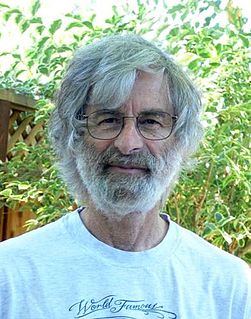A Quote by Henry Mintzberg
We find that the manager, particularly at senior levels, is overburdened with work. With the increasing complexity of modern organizations and their problems, he is destined to become more so. He is driven to brevity, fragmentation, and superficiality in his tasks, yet he cannot easily delegate them because of the nature of his information.
Related Quotes
First impressions are often the truest, as we find (not unfrequently) to our cost when we have been wheedled out of them by plausible professions or actions. A man's look is the work of years, it is stamped on his countenance by the events of his whole life, nay, more, by the hand of nature, and it is not to be got rid of easily.
Extrapolated, technology wants what life wants:
Increasing efficiency
Increasing opportunity
Increasing emergence
Increasing complexity
Increasing diversity
Increasing specialization
Increasing ubiquity
Increasing freedom
Increasing mutualism
Increasing beauty
Increasing sentience
Increasing structure
Increasing evolvability
Progressively saved by the machine from the anxieties that bound his hands and mind to material toil, relieved of a large part of his work and compelled to an ever-increasing speed of action by the devices which his intelligence cannot help ceaselessly creating and perfecting, man is about to find himself abruptly plunged into idleness.
Ideally a painter (and, generally, an artist) should not become conscious of his insights: without taking the detour through his reflective processes, and incomprehensibly to himself, all his progress should enter so swiftly into the work that he is unable to recognize them in the moment of transition. Alas, the artist who waits in ambush there, watching, detaining them, will find them transformed like the beautiful gold in the fairy tale which cannot remain gold because some small detail was not taken care of.
Children should not be coddled in their intellectual training any more than in their physical; and though the studies should be made interesting the interest should arise out of the studies themselves. We have bred a generation that cannot digest anything intellectual but tablets of peptonized food. One sees that in the popular papers with their brevity, still increasing in brevity as far as brevity can increase, and in the capacity for thought of our rulers.
There is a race between the increasing complexity of the systems we build and our ability to develop intellectual tools for understanding their complexity. If the race is won by our tools, then systems will eventually become easier to use and more reliable. If not, they will continue to become harder to use and less reliable for all but a relatively small set of common tasks. Given how hard thinking is, if those intellectual tools are to succeed, they will have to substitute calculation for thought.
Modern man lives isolated in his artificial environment, not because the artificial is evil as such, but because of his lack of comprehension of the forces which make it work- of the principles which relate his gadgets to the forces of nature, to the universal order. It is not central heating which makes his existence 'unnatural,' but his refusal to take an interest in the principles behind it. By being entirely dependent on science, yet closing his mind to it, he leads the life of an urban barbarian.
To the average man, life presents itself, not as material malleable to his hand, but as a series of problems...which he has to solve...And he is distressed to find that the more means he can dispose of-such as machine-power, rapid transport, and general civilized amenities, the more his problems grow in hardness and complexity....Perhaps the first thing he can learn form the artists is that the only way of 'mastering' one's material is to abandon the whole conception of mastery and to co-operate with it in love: whosoever will be a lord of life, let him be its servant.
The great liability of the engineer compared to men of other professions is that his works are out in the open where all can see them. His acts, step by step, are in hard substance. He cannot bury his mistakes in the grave like the doctors. He cannot argue them into thin air or blame the judge like the lawyers. He cannot, like the architects, cover his failures with trees and vines. He cannot, like the politicians, screen his shortcomings by blaming his opponents and hope the people will forget. The engineer simply cannot deny he did it. If his works do not work, he is damned.
In Dogen's writing, the practical instruction, philosophy and poetry are together in one voice. People hear about his poetry, go to his work, and expect to find poetry, or they hear about his philosophy and expect to find philosophy. They look just for practical instruction and find poetry and philosophy. They can't make out the complexity of his writing, become frustrated and let him go.


































